Holiday pay ruling: PSNI has ten days to appeal
- Published
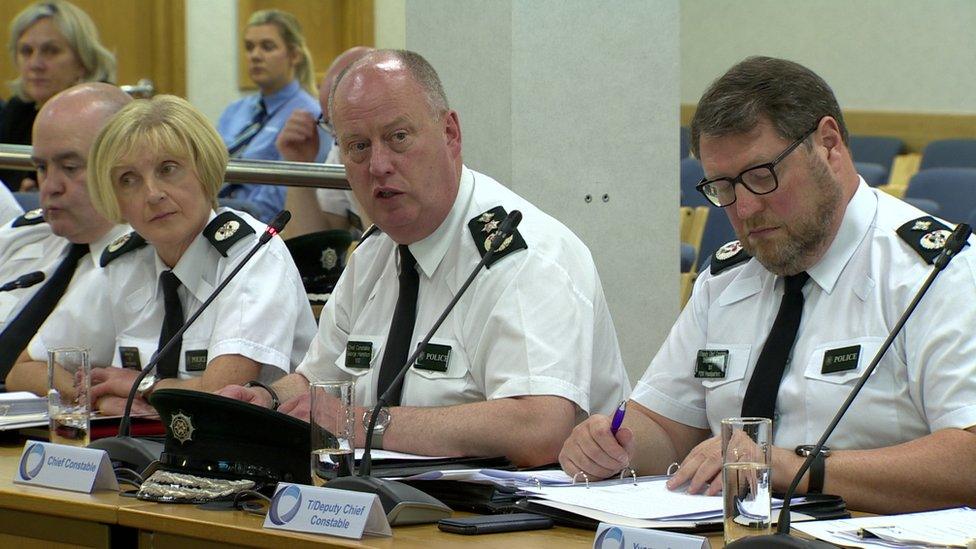
Sir George Hamilton is due to retire as Chief Constable of the PSNI at the end of this week
The outgoing chief constable of the Policing Service of Northern Ireland (PSNI) says the organisation has ten days to decide whether to appeal a decision on holiday pay.
George Hamilton made the comments at Wednesday's Policing Board meeting.
Last week the Court of Appeal ruled staff were owed money for a shortfall in pay going back 20 years.
Sir George Hamilton, who is due to retire at the end of this week, said the repercussions could be "massive".
He added that while the police service "don't dispute the fact that holiday pay is a legal entitlement" it had concerns around the retrospective nature of the payments.
The issue will be one of the first addressed by incoming Chief Constable Simon Byrne.
Background
In November 2018, a tribunal found that a group of more than 3,700 police officers and civilian staff were owed money for a shortfall in holiday pay dating back 20 years.
Miscalculations arose after holiday pay was based on basic pay and did not include overtime.
Back then, the bill was estimated to be around £30m.
However in June, appeal court judges held that holiday pay should be calculated on the basis of actual annual working days - meaning the figure could be in the region of £40m.
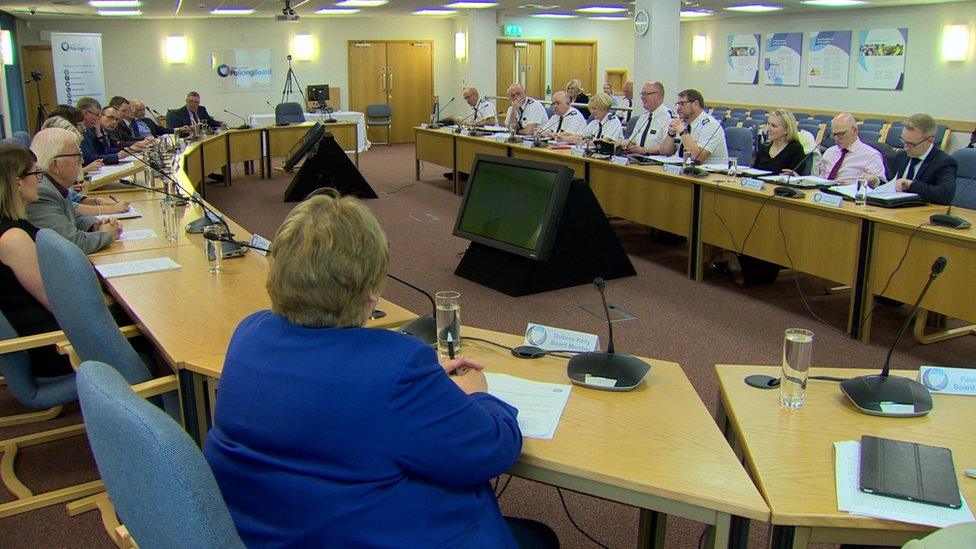
This was George Hamilton's last appearance before the policing board as Chief Constable of the PSNI
On Wednesday, the current head of the police said he had raised the issue with his replacement Simon Byrne, and said deliberations about whether to appeal the decision at the Supreme Court were ongoing.
"The court has taken a view against us on this matter, we as a senior leadership do not want to be unreasonable to a hardworking workforce," said George Hamilton.
"We want to be reasonable about this...but it's around the detail of what this looks like and the retrospective nature.
"The repercussions right across the public sector are massive. It's going to be tens, if not hundreds of thousands of pounds across the public sector if the ruling stands.
"If the figure £40m is right, that money is going to have to come from somewhere in public service delivery.
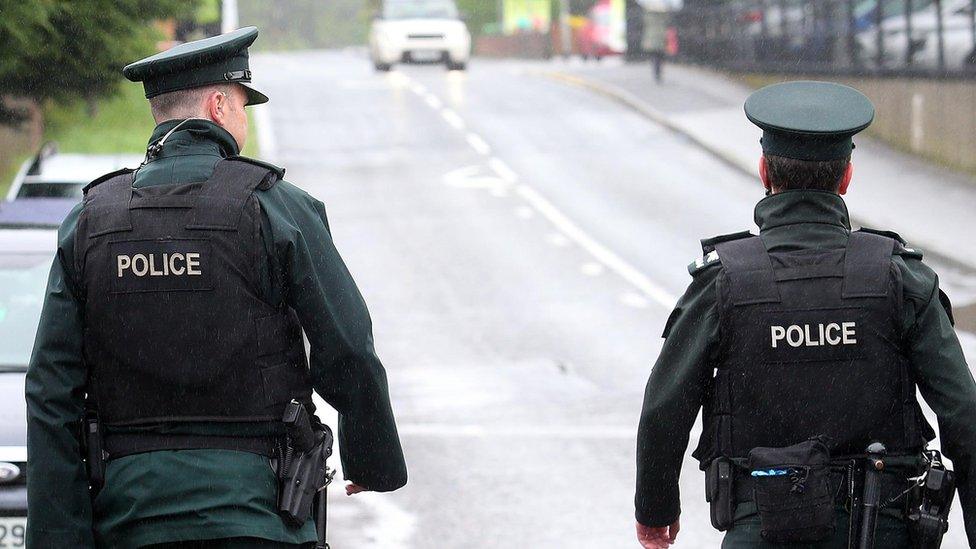
Class action was brought by a group representing more than 3,700 police officers and civilian staff
"Somewhere there's going to be a negative impact on service delivery because we're going to be paying public servants this extra money.
"I have no difficulty in paying it from this point on if that's the rule, and I've not difficulty in paying it with a reasonable reach back into the past.
"I don't think personally 20 years is reasonable, the court has decided otherwise."
He added that while no decision had yet been made to appeal the ruling, he "was sure Mr Byrne would come to the right decision".
'Legally entitled to pay'
The Chairman of the Police Federation in Northern Ireland, Mark Lindsay, says he would be "surprised and disappointed" if the court's decision was appealed.
"I think there is the question of where does any money come from, and it goes beyond policing.
"This is a legal entitlement that should have been paid to workers for many, many years.
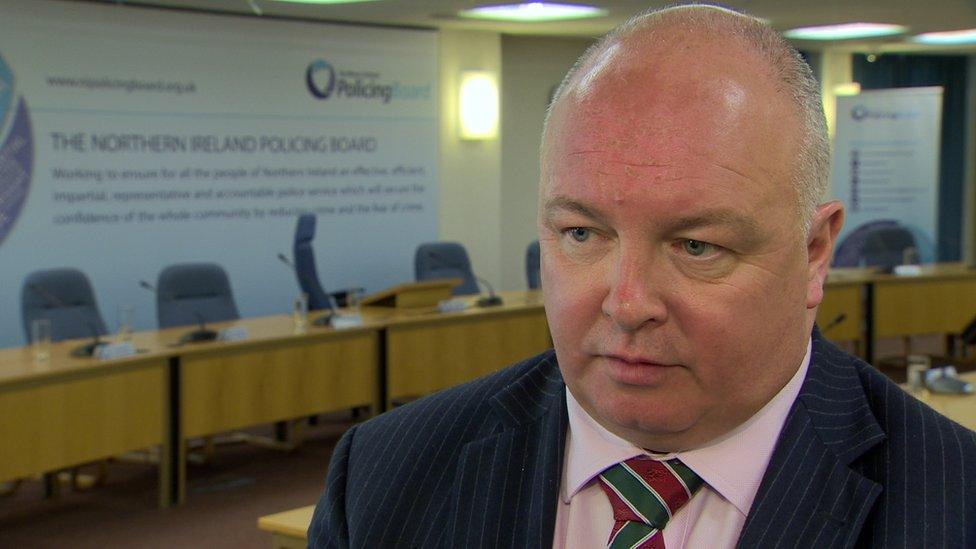
Mr Lindsay said he hoped the police service would not appeal the court's decision around retrospective holiday pay
"I would expect it would go beyond policing - we could have significant bills to the public purse.
"There are lots of issues that have to be considered in this case."
Mr Lindsay also said he would raise the issue with Mr Byrne when he takes up his new role next week.
- Published22 June 2019

- Published19 June 2019

- Published17 June 2019

- Published25 May 2019
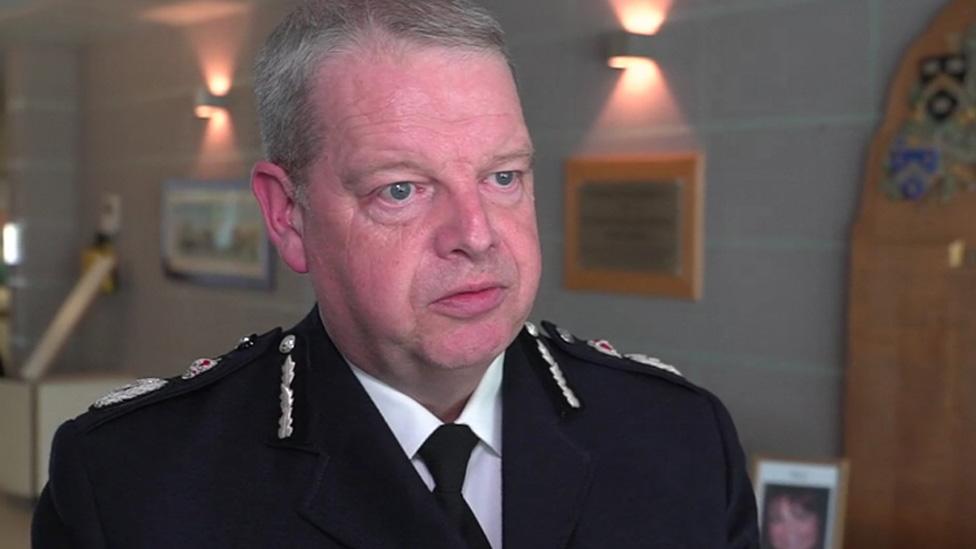
- Published5 November 2018
